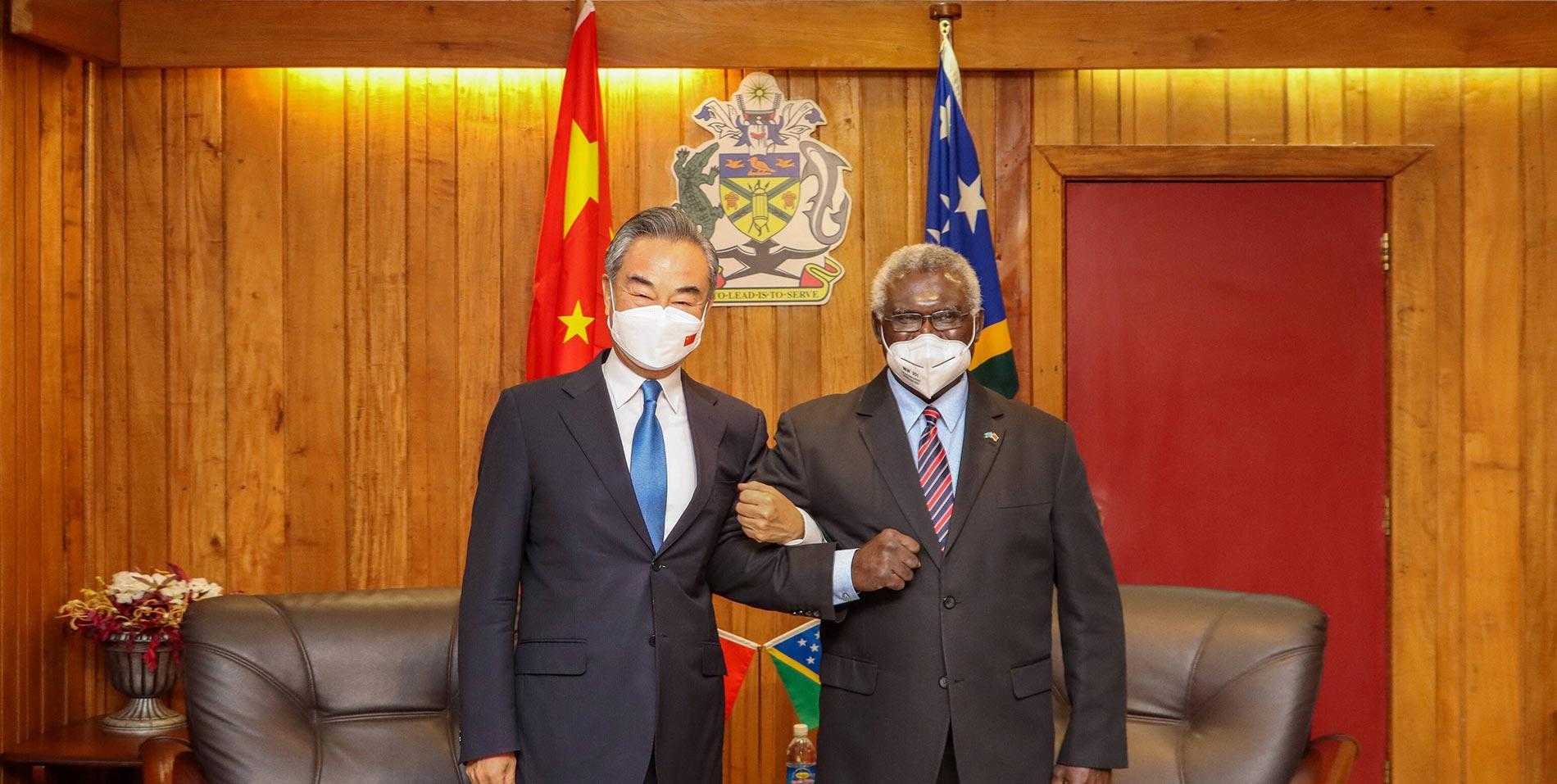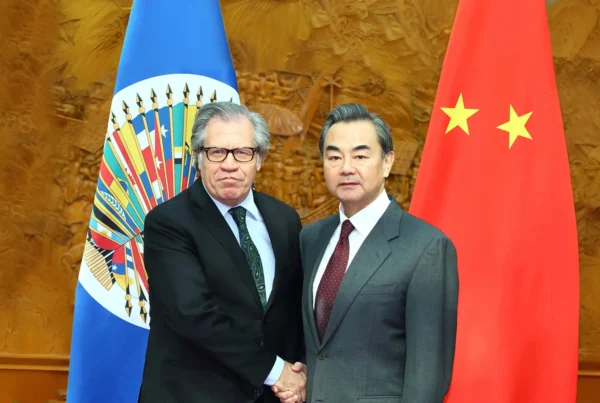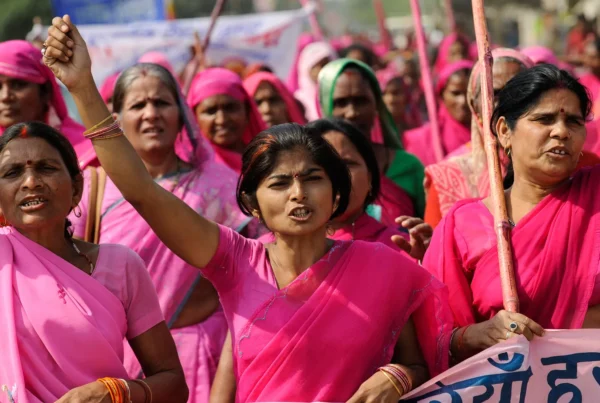In April 2022, the People’s Republic of China (PRC) signed a bilateral security cooperation agreement with Solomon Islands. According to the PRC, the main purpose of this treaty is to “assist Solomon Islands in maintaining social order.” Major actors in the Pacific have expressed their concerns about China’s growing influence and the possibility of its first military base in the Pacific region. What role do Solomon Islands play in the confrontation between the West and China, and will the island nation be forced to choose sides?
Murat Gibadyukov, 17 October 2022
According to the draft version of the cooperation agreement leaked in March of 2022, the Solomon Islands authorities will not only be able to request Chinese assistance from the police, military personnel, and other law enforcement forces, but troops from China can also be sent to the Islands to “protect the safety of Chinese personnel and major projects.”
Washington and its allies in the region fear that such a move could strengthen Beijing’s position by giving it a military beachhead in the South Pacific. After the official announcement of the agreement by Manasseh Sogavare, the Prime Minister of Solomon Islands, the US Department of State spokesperson, Ned Price, stated that “…the broad nature of the security agreement leaves open the door for the deployment of PRC military forces to Solomon Islands… signing such an agreement could increase destabilization within Solomon Islands and will set a concerning precedent for the wider Pacific region.”
Concerns about the agreement have been expressed by other major actors in the region, including Australia. In a joint statement on 19 April, Australian Foreign Minister Maris Payne and Pacific Affairs Minister Zed Seselja said they were “deeply disappointed” with the deal: “We are concerned about the lack of transparency with which this agreement has been developed, noting its potential to undermine stability in our region. We continue to seek further clarity on the terms of the agreement, and its consequences for the Pacific region.”
Many experts point to the connection between the signing of the treaty and the unrest that erupted in the archipelago in 2021. On 17 November 2021, demonstrators stormed the parliament and set fire to several government buildings, a police station, and a factory. The demonstration initially started as a peaceful objection to the government’s previous decision to recognize Beijing over Taiwan, but quickly turned into an attempt to overthrow the ruling government. In response, Prime Minister Sogavare asked Australia for peacekeepers under the Australia-Solomon Islands Bilateral Security Treaty, which replaced the Regional Assistance Mission to Solomon Islands (RAMSI) Treaty that expired in 2017 when Australia withdrew its security forces. The new treaty was signed the same year and allows for the “Australian police, defense force and associated personnel… to deploy in the event of a major security challenge.”
Concerns that relations between Solomon Islands and Western nations were deteriorating in favor of China were confirmed in late August 2022 when the US Coast Guard ship Oliver Henry was unable to refuel in Honiara, the main port of Solomon Islands. The US Coast Guard spokesperson in Honolulu, Lieutenant Christine Cam, stated that the vessel was on a routine patrol around Solomon Islands and needed to replenish fuel and supplies, but the authorities did not respond to the request to dock. After a similar situation occurred with a British ship, Solomon Islands banned all naval visits to the islands.
As a result of these events, in late September 2022 the US government hosted in Washington DC the first ever US-Pacific Islands Country Summit, which brought together more than a dozen Pacific Island leaders and, according to the White House, should demonstrate a “deep and enduring partnership” between the United States and these countries.
Consisting of 11 points, the US-Pacific Partnership is quite broad and outlines general principles of cooperation to combat climate change, accelerate economic growth of the Signatory States, protect the Pacific Ocean, and support peace and security in the region. “We recommit ourselves to working together… in the face of a worsening climate crisis and an increasingly complex geopolitical environment”- according to the statement from the White House.
The Declaration was to be signed at the end of the summit. However, to the surprise of the US, Solomon Islands announced that it would refuse to sign the agreement even before the summit began and claimed that some points of the treaty should be discussed further. However, in a statement on 4 October 2022, Jeremiah Manele, the Foreign Minister of Solomon Islands, stated that the country signed on to the agreement, but only after indirect references to China were removed: “There were some references that we were not comfortable with… that put us in a position that we would have to choose sides, and we don’t want to be placed in a position that we have to choose sides.”
The treaty presented by the United States differs from the detailed agreement proposed by the PRC to the Pacific states in May earlier this year when China’s Foreign Minister Wang Yi began his diplomatic tour around the region. Beijing spelled out the specific amounts, programmes, and even cultural exchange activities in the document. In addition, the Chinese government also intended to expand regional security cooperation and, simultaneously, build laboratories, train police officers, and strengthen cooperation in cyberspace. However, the treaty has been put on hold due to the objections from several countries in the region.
China’s attempts to strengthen its hold in the region have not gone unnoticed by Western countries. For Beijing the bilateral security cooperation agreement with the Solomon Islands will be a crucial step in expanding Chinese influence in the region. Australia’s Labor party has called the agreement “the worst failure of Australian foreign policy in the Pacific”.
It remains to be seen whether the Western fears of a threat to the geopolitical security in the Pacific area will become reality.







